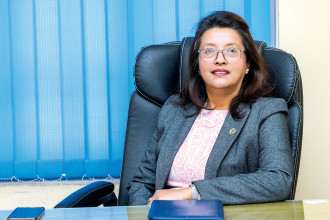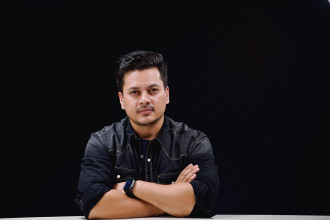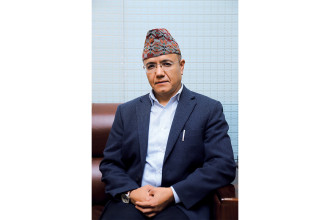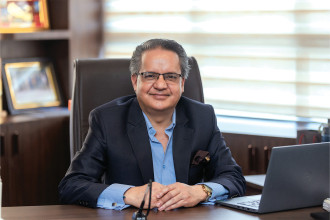
Reshu Aryal is the Education Advisor to the Mayor of Kathmandu Metropolitan City, and an educator keen on social transformation by working towards improving equity and access to quality education for underserved children from the rural communities in Nepal. Her work as Chair of the Board of Teach for Nepal for five years since its inception and as a Leadership Council member since, attests to this commitment.
As an educator and program development professional, she has a proven track record in designing and implementing progressive pedagogical practices in early childhood education for effective immersive, emergent curriculum that prioritizes STEM and the Arts and the protection of the environment. She has also worked as the Executive Director of the Fulbright Program in Nepal championing mutual understanding between the United States and Nepal through scholarly exchanges and promoting global citizenship and deeper impact on community life improvements through local action.
With over 20 years of experience in sustainable and progressive education,
Aryal believes that it is crucial to uplift experiential learning that concentrates on the development of a child’s talents. Aryal, who has completed her Master’s in Education Leadership and Change, spoke to Business 360 recently about her thoughts on leadership and the challenges and future of education in Nepal. Excerpts:
How would you define a leader?
For me, leaders are those who are open-minded about learning along with being able to take on the responsibilities that come along with it. One has to have a vision and will to take any project forward regardless of the roadblocks. They should have a mindset of trying and never giving up. Additionally, being a leader, one has to put in a lot of hard work and determination and move forward towards the change one has envisioned.
Who comes to your mind as an ideal leader?
I have been very inspired by some political figures recently, partly because I am very curious about how to organise a community towards political change. There’s an African-American woman called Stacey Abrams from Georgia who I have been looking up to. She is committed to enlisting more people of diversity to vote for the right candidate. If we don’t have more people voting, there will not be a manifestation for change. That is a theory she has been dedicatedly working on. She not only works on enlisting people into the voting campaign but does a lot of tough community work to actually help people go to a place and register themselves. She also helps the people to understand the power of their rights as a citizen. Hence, I admire her work and the efforts she has been making towards the community and educating them in the best possible way.
Is leadership ‘in-born’ or ‘acquired’?
Leadership is a quality that is experienced as you work in different segments of life. Leadership is acquired by observation, by practice and that’s why change of thought or kind of breaking the pattern is really important for new forms of leadership to emerge. Intentional actions to break patterns of the past are vital so that we can make a change for the future. And leadership is also something that is manifested in continuous, focused, aligned action towards change meaning you basically learn as you lead and lead as you learn.
Could you share with us any incident that tested your leadership ability?
There was an incident a few years back when a person was abused and came to me for help. We had to involve the police and initiate an investigation against the culprit. I was asked to take the lead in the case and support the victim. As an individual, I had taken the role of leadership in my professional life but to face a situation where there was a direct investigation it was very intense.
We do often read about and also see cases from afar and we do support people who have been victimised but then actually being involved in an incident where we are in a position of conflict of interest and to say whether or not we want to actually take up a legal case and getting involved was an experience of leadership for me. I was there because people were looking up to me for leadership and I had to be spot on with whatever advice I had to give.
How important is it to have a good team to work with?
At the end of the day, it is all about the team. There could be somebody who can actually shape the conversation and bring a meaning out of it and at the same time take care and sustain a synergy and be a positive influence and bring a little bit more intellectual capacity. That person can be a leader, but without teamwork and a very clear idea of the various roles that different members of the team need to fulfil and a clear vision on how to make the entire machinery work is not possible without a good team.
For example, a well-functioning family really works like a team whereby members consult with each other on whether or not a certain decision is right for the family or not. And if there is a consultative culture, kids don’t suffer when they face a crisis. So, I think teamwork is fundamental. I mean, even when we were hunter gatherers, we were hunting in a team. It wasn’t like just one individual killed a deer all by themselves. In a nutshell, we are very social beings and for any project or idea to come to fruition there has to be teamwork. Somebody else’s higher abilities should not be a threat to you but a step towards change.
When should a leader hand over the leadership position?
I don’t think it should be a subjective decision and it shouldn’t be left to the leader to decide when or not they will leave the position. It is the system that has to dictate when a leadership position has to be handed over. So, if we need to change the leadership after five years there should be a proper transition of power. A system has to be built in a way where you do not have to count on the leader as the one and only. We have to really work on a much more consultative culture. Any system that makes one person indispensable is not a functioning system.
What do you consider your most significant accomplishment as a leader?
One of the major accomplishments is to bring a different learning pedagogy in the communities and definitely my engagement and my involvement and leadership in TFN, which has now yielded around 400 young, very charged youths who feel and have the support to shape the future of Nepal by being involved in local communities and reaching the rural parts of Nepal with the objective to give equal education opportunities to the people.
How can a leader prepare for the unknown?
I think personal crises hit you harder when one is in the leadership position. You could be very highly functional in a workspace, but then when you go through life situations of your own, like somebody passes away or falls very ill then the emotional toll it takes on you as a person can be disturbing. When you are expected to be a high functioning leader then it becomes difficult like I faced quite some time back. It was a time when as a leader I had to tell my team that I was barely functional as a leader because of some personal crisis that I was going through. It was during the Covid when there was a lot of stress as close ones were dying of the virus and there was so much of uncertainty. People’s mental health was a major challenge at the time. At that moment I wasn’t prepared for it and it made me realise that everyone has the potential to deal with problems but when mental wellbeing is questioned, we are never prepared for the unknown. So, I feel one has to take whatever life throws at you and try to come out stronger.
As you are working closely with the Mayor and Deputy Mayor of Kathmandu Metropolitan City as advisor, what are the qualities you appreciate in them?
Balen Shah and Sunita Dangol are exceptional examples of young people taking the lead in our bureaucratic system. I believe young people should take the lead in politics to bring about positive change and they have done just that by taking a major step and winning the election. When a person has a vision and will to work towards a rational idea of starting a movement, they are true leaders. On the same note, they are young individuals. It might take some time for them to get used to the practices and bring a change of thought within the communities they are working in. However, I am confident that their five year tenure will bring a huge difference in the system.
READ ALSO:
Published Date: April 5, 2023, 12:00 am
Post Comment
E-Magazine
RELATED Leadership





